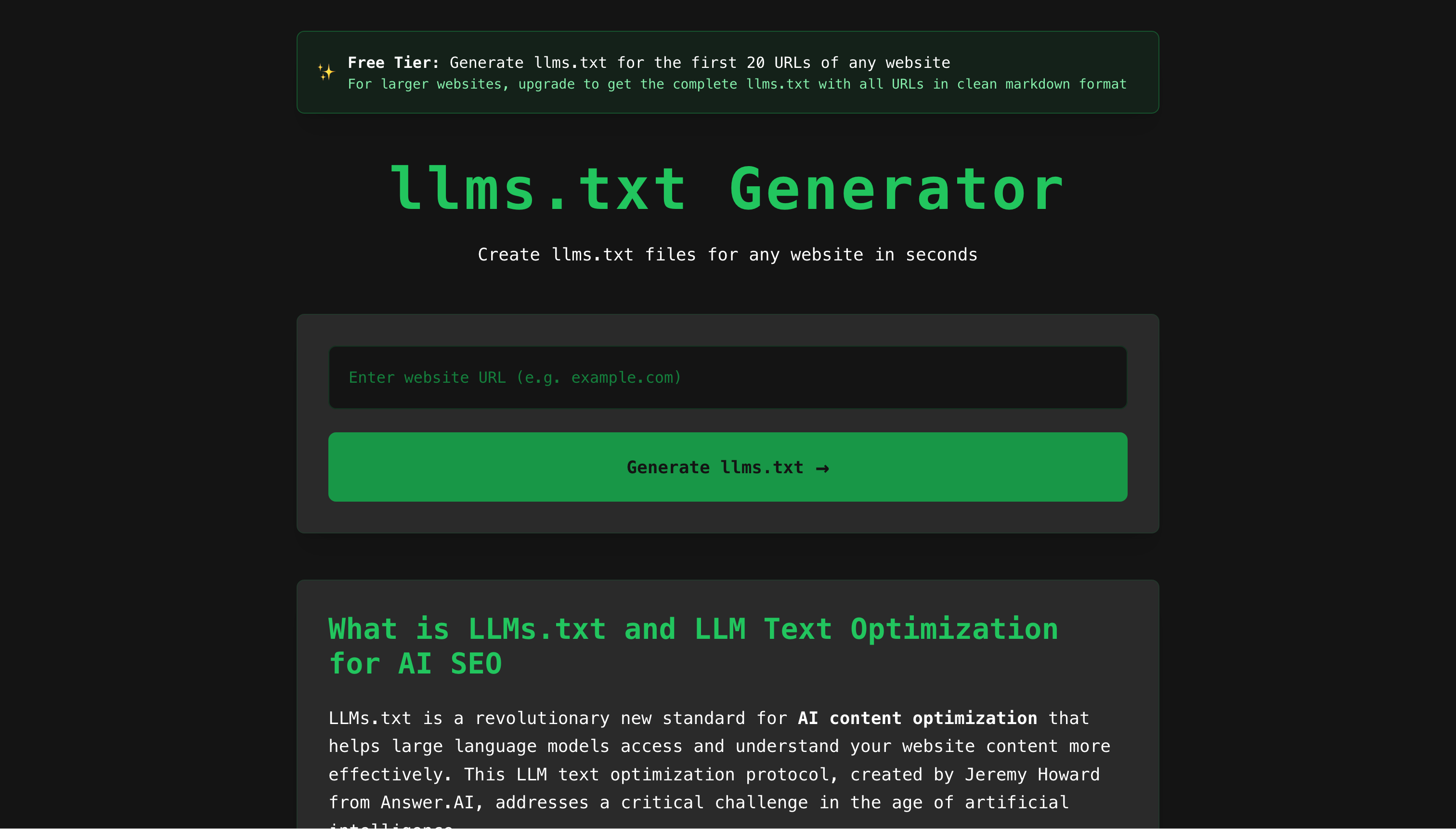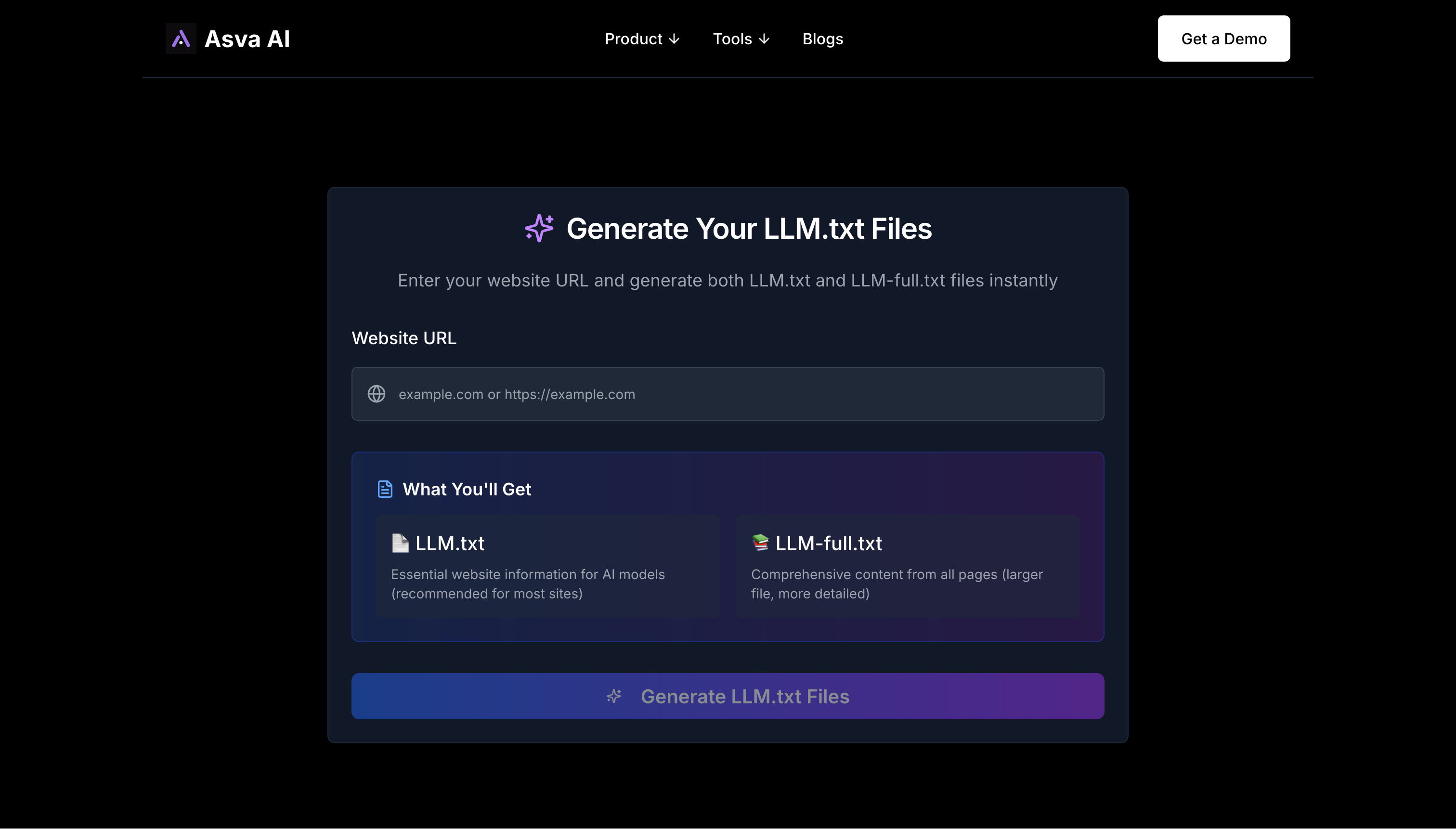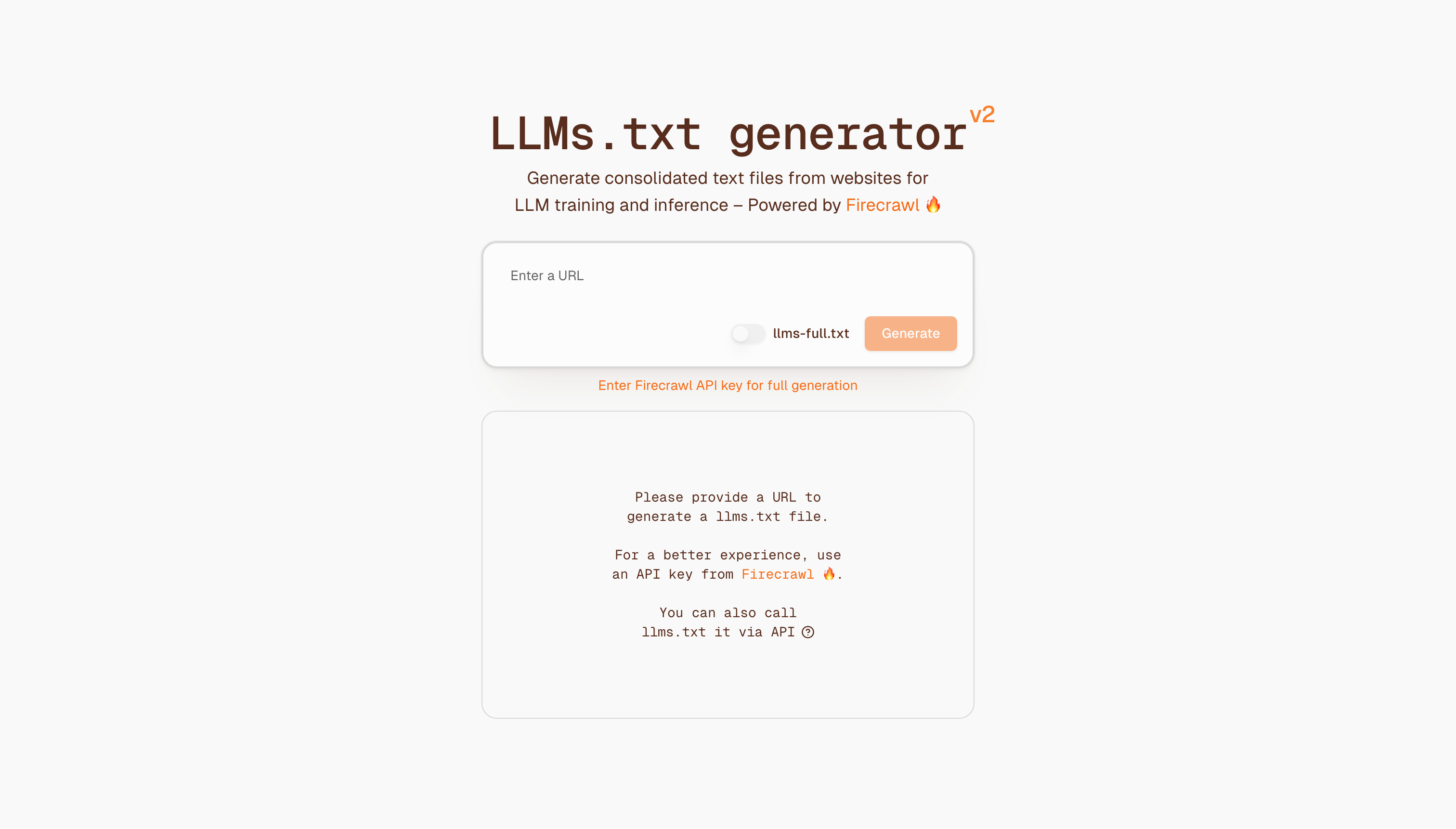What’s a LLMs.txt file and why you need one?
Remember when having a website was optional?
Then came Google, and suddenly every business needed to be online. Same with mobile-friendly sites. Mobile search took over, and businesses scrambled to catch up.
The thing about web standards is that early adopters often win long term. They get the traffic, the visibility, and the competitive edge while everyone else is still figuring out what happened.
Right now, there's a new web standard emerging that most businesses have never heard of. It's called llms.txt, and while it's not required yet, smart business owners are already preparing for it.
Meet llms.txt: The File That Could Change Your Online Visibility
Think of llms.txt as the next evolution of robots.txt.
If you've been online for a while, you might know that robots.txt tells search engines like Google which parts of your website to crawl and index. It's been a cornerstone of SEO for decades.
llms.txt does something similar, but for AI systems. It's a simple text file that sits in your website's root directory and tells Large Language Models (LLMs) like ChatGPT, Claude, and Google's Gemini where to find your most important content.
It looks like like this
## Title
> What your website is about
## Services
> What you do?
## Pages
> Core Pages for LLMs to understand
Here's why this matters: AI systems are increasingly being used to answer questions, provide recommendations, and help people make decisions.
When someone asks an AI "What's the best accounting firm in Melbourne?" or "Where can I find quality healthcare in Brisbane?", the AI needs to understand what your business does and why it matters.
The problem is that websites are messy. They're full of navigation menus, advertisements, legal disclaimers, and other clutter that makes it hard for AI systems to identify what's actually important. Your homepage might have your core value proposition buried between a cookie notice and a newsletter signup form.
llms.txt solves this by creating a curated map of your most valuable content. It's written in simple Markdown format and uses clear headings to organize links to your key resources:
- Your main service pages
- Important policies and procedures
- Product catalogs or service descriptions
- API documentation (if relevant)
- Any other content that defines what you do and how you help customers
Here is an extract of Wolf IQs LLMs.text:
# Wolf IQ
Wolf IQ is a website design and development agency that helps small business owners and marketing leaders grow online through premium hosting, maintenance, support and growth plans.
Wolf IQ supports more than 250 companies in Australia and has helped customers generate over $550 million in revenue online, The company specialises in fast, secure, and conversion-focused websites tailored to industries like medical, ecommerce, finance, and legal
---
## Services
- [Website Design](https://www.wolfiq.com.au/services/website-design) — Design custom websites that align with business goals and deliver results.
- [Website Care Plans](https://www.wolfiq.com.au/services/website-care-plans) — Provide ongoing support, updates, and proactive site care.
- [Growth Plans (SEO, PPC, etc.)](https://www.wolfiq.com.au/services/growth-plans) — Drive visibility and growth through data-driven SEO and paid campaigns.
The standard was proposed by Jeremy Howard in September 2024, recognizing that the web needed a better way to help AI systems understand and process website content. It's designed to remove the guesswork and give AI models direct access to the information that matters most.
But the current reality is that no major AI provider officially supports llms.txt yet. Not OpenAI. Not Google. Not Anthropic. It's still a proposed standard, which means implementing it today won't immediately change your visibility.
The thing is that web standards don't become important overnight. They start as proposals, get adopted by forward-thinking companies, and then become essential when the major players finally implement them.
Companies like Anthropic, Cloudflare, and Mintlify are already using llms.txt files. They're positioning themselves for the future, even though there's no immediate benefit. That's exactly the kind of strategic thinking that separates market leaders from followers.
Why Smart Businesses Are Getting Ready
AI is reshaping how people find information.
More Australians are using AI assistants to research products, services, and local businesses. When these systems can't easily understand what your business does, you become invisible in AI-powered search results and recommendations.
We've seen this movie before. When local SEO became important, the Australian businesses that optimized their Google My Business listings early dominated local search results.
The smart money is on preparation, not procrastination. Even if llms.txt takes two years to gain widespread adoption, having it in place positions your business to benefit immediately when that adoption happens.
How to Set Up Your llms.txt File
There are a bunch of tools online that can help you here already.
1. LLM Text Generator - https://llmstxtgenerator.org/

2. ASV AAI - https://asvaai.com/tools/llm-txt-generator

3. LLMs TXT - https://llmstxt.firecrawl.dev/

But let's be real - you didn't become a business owner to become a web standards expert. You have customers to serve, staff to manage, and growth to drive.
That's where strategic partners like Wolf IQ come in. We monitor emerging standards like llms.txt, understand their implications for Australian businesses, and help you implement them before they become critical.
If you’d like us to set-up your LLMs.txt, just get in touch.

.png)




.png)
.png)
.png)

.png)
.png)
.svg)
.svg)
.svg)

